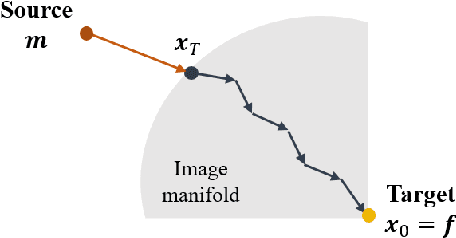DiffuseMorph: Unsupervised Deformable Image Registration Along Continuous Trajectory Using Diffusion Models
Paper and Code
Dec 09, 2021



Deformable image registration is one of the fundamental tasks for medical imaging and computer vision. Classical registration algorithms usually rely on iterative optimization approaches to provide accurate deformation, which requires high computational cost. Although many deep-learning-based methods have been developed to carry out fast image registration, it is still challenging to estimate the deformation field with less topological folding problem. Furthermore, these approaches only enable registration to a single fixed image, and it is not possible to obtain continuously varying registration results between the moving and fixed images. To address this, here we present a novel approach of diffusion model-based probabilistic image registration, called DiffuseMorph. Specifically, our model learns the score function of the deformation between moving and fixed images. Similar to the existing diffusion models, DiffuseMorph not only provides synthetic deformed images through a reverse diffusion process, but also enables various levels of deformation of the moving image along with the latent space. Experimental results on 2D face expression image and 3D brain image registration tasks demonstrate that our method can provide flexible and accurate deformation with a capability of topology preservation.
 Add to Chrome
Add to Chrome Add to Firefox
Add to Firefox Add to Edge
Add to Edge